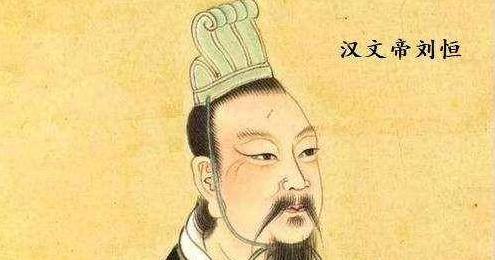On the first day of June in the seventh year of the Later Yuan, Emperor Wen of Han died at Weiyang Palace at the age of 47.

Before dying, he left a will, he said that the birth of all things under the world is not dead, death is the law between heaven and earth, is a natural phenomenon of living things, there is no need to be too sad, now people generally like to live, afraid of death, in order to bury the dead at the expense of a lot of money, even ruined, long-term mourning also hurt the body, he is very disapproving of this practice.
He said that he did not have such a high morality, and he did not have much benefit to the common people, and now that he was dead, he made the officials mourn and cry for a long time, and after a long period of cold and summer, let the people mourn for themselves and damage their minds, reduce their diet, and interrupt the sacrifice to their ancestors, which aggravated his immorality, he said: "How can I be worthy of the people of the world?" ”
Emperor Wen said in his testament: "Since I succeeded to the throne as the emperor, with such a small figure as me, above the princes of the world, it has been more than 20 years, relying on the spiritual power of heaven and earth, relying on the blessing of the god of the society, domestic tranquility, no war, I am not smart, often worried about mistakes, worried about the disgrace of the legacy of the former emperor, and later reigned for a long time, more afraid of not being able to die well, now I have the privilege of doing my best, and I can be offered in the temple of the high emperor, with my disrespect, I can get such a good result. What's more to be sad about. ”
"Please tell the people of the world, after hearing the news of my death, weep for three days, and then take off their mourning clothes, do not forbid wives and daughters, sacrifice ghosts and gods, and drink and eat meat, and those who should participate in funerals in everything, do not wear mourning clothes that are decrepit, do not wear mourning clothes that are cut off, do not wear filial piety that is tied around the waist and head, do not wrap the frame and weapons in white cloth, and do not mobilize men and women to come to the palace to cry, and those who should cry in the palace cry 15 times a day, and stop after crying, not when they cry in the morning and evening, they are forbidden to cry without permission. After burial, the mourning clothes of the ministers of great merit should be worn for 15 days, the clothes of the minor merits should be worn for 14 days, the mourning clothes should be worn for 36 days, and the mourning clothes should be worn for 7 days, and the mourning clothes should be taken off immediately."
"Other matters that are not listed in the will and testament are all handled in accordance with the spirit of this draft, and the world is announced, so that people can emphasize that I understand what I mean, my tomb Baling should maintain the original appearance of the original local mountains and rivers, do not change anything, the harem women from the wife below at least the envoys sent home, appoint Lieutenant Zhou Yafu as the general of the car, Xu Hun of the canon state as the general of the general Tun, Lang Zhong ordered Zhang Wu to be the general of the restoration, mobilized 16,000 active soldiers from nearby counties, mobilized 15,000 soldiers on active duty in the capital, and was responsible for escorting the coffin and digging the grave The affairs of the overburdened mound were under the command of General Zhang Wu."
On the seventh day of the first month of June, Emperor Wen of Han was buried in Baling with the honorific title of "Emperor Xiaowen".